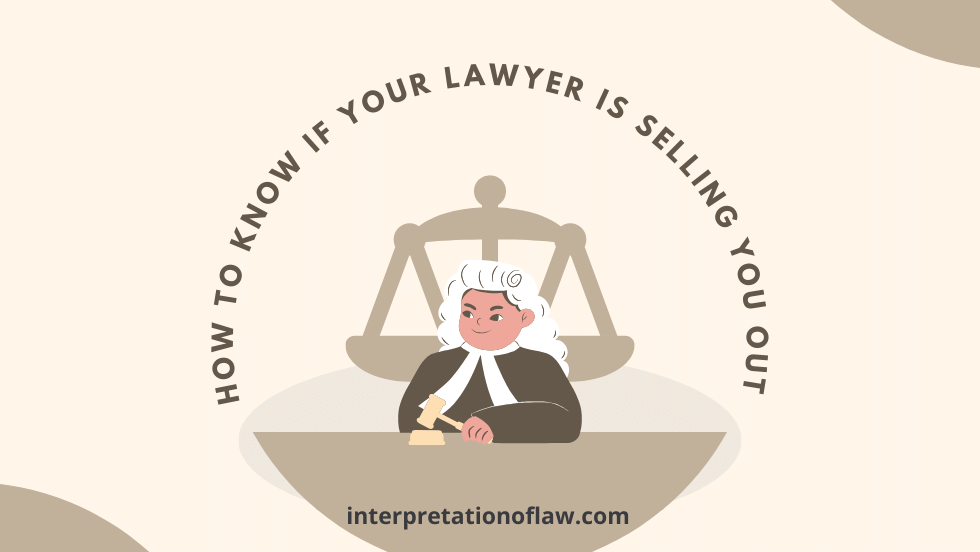Navigating the complexities of the legal system can often be as challenging as the matter at hand. Trusting a professional to guide you through the twists and turns of your legal journey is a crucial step. But what if that trust begins to erode?
What if, beneath the polished veneer of your chosen attorney, lies incompetence or, worse, a willingness to compromise your case for their own gain? Here’s how to recognize the red flags that may signal your lawyer is not the steadfast advocate you need.
Identifying the Signs of an Incompetent Lawyer
When we contract legal aid, we do so in the belief that our counsel will represent our interests diligently and competently. However, the signs of an underperforming lawyer can come to light, often indicated by missed deadlines, poor communication, and a lack of transparency, which leads to financial and emotional duress.
For instance, consider the case of a client whose lawyer consistently missed filing deadlines. What may seem to be minor oversights at first could potentially derail the entire legal process, causing needless delays or, in worst scenarios, the dismissal of your case.
Red Flags to Watch For: Signs of an incompetent lawyer
- Missed Deadlines: Failure to meet court-set timelines is a significant breach of duty.
- Poor Communication: Your calls go unanswered, emails unacknowledged, or you’re always left speaking with an assistant.
- Lack of Transparency: Cockpit doors are closed on you, meaning you’re not given clear information or regular updates on your case.
- Fee Mismanagement: You notice inconsistencies or unexplained charges in your billing statements.
- Disinterest: Your lawyer seems apathetic or constantly dismisses your input or concerns.
- Negligent Case Management: Critical documents go missing or mistakes are made in filings.
These signs may materialize slowly, yet cumulatively, they add up to a portrayal of a disengaged attorney, one whose competence—or indeed, allegiance—you may rightfully question.
Read More: How to Prove You Were Not Served Properly?
What to Do When My Lawyer is Selling Me Out?
It’s a gut-wrenching moment when the suspicion creeps in that your advocate might not be advocating for you after all. One client tells a story of feeling prolonged frustration with her attorney’s lack of clear communication, leaving her in a perpetual fog of uncertainty and anxiety.
The relationship felt like a betrayal, especially when she learned he had been advising her towards settlements that benefited him financially over meeting her best interests.
If these fears are realized, it’s vital to act assertively:
Steps to Take:
- Document Everything: In legal matters, just as in medicine, the documentation can be as critical to the health of your case as the substantive work itself. Keep detailed records of every interaction, missed deadlines, improper billings, etc.
- Voice Concerns: It’s more than permissible to confront your attorney about any misgivings you have regarding their performance. Doing so could potentially resolve misunderstandings.
- Seek a Second Opinion: Shopping around isn’t just for the consumer market. Don’t hesitate to seek advisory consultations from other lawyers.
- Consider a Change: Changing your lawyer may be inconvenient, but staying could be disastrous. If necessary, move swiftly to secure alternative representation.
- Report Unethical Behavior: Bodies such as state bar associations exist to enforce standards within the legal practice. If your case warrants it, file a complaint.
Preventive Measures to Avoid Being Sold Out
In an ideal world, every legal hire would lead to a case study in successful client-attorney relationships, where proactive vigor and ethical rigor reign supreme. But we live in the real world. Applying vigilance from the start may save you from the turmoil of being sold out down the line.
Tips for Hiring:
- Research: Just as you wouldn’t buy a car from the first showroom you visit, don’t hire the first lawyer you consult. Do your homework.
- Clarify Expectations: Be clear and upfront about your expectations and make sure they are willing to meet them.
- Verify Credentials: Confirm that your lawyer is licensed to practice law and hasn’t been disciplined for unethical behavior in the past.
Advise for Legal Consumers
As a legal consumer, your ultimate goal is to be the beneficiary of justice. Arm yourself with knowledge, heed the warning signs, and above all, remember that your attorney works for you. It’s your case, your life, and your victory to claim.
Stay informed, stay involved, and stay undeterred. Justice is your right to pursue, and a competent, dedicated lawyer is your right to have by your side.
Frequently Asked Question
What to do when your lawyer stops communicating with you?
If your lawyer stops communicating with you, it’s important to document all attempts at communication and any relevant information about the case. You can also try reaching out to their assistant or office manager for updates on your case. If all else fails, consider seeking a new lawyer. However, before doing so, make sure to voice your concerns and give them a chance to resolve any misunderstandings.
What can lawyers find out about you?
Lawyers have a legal and ethical obligation to maintain client confidentiality, so they cannot access personal information about you without your consent. However, during the case, they may need to gather relevant information, such as your employment history or medical records, with your permission. They also have access to public records and databases that may contain information about your personal or professional life.
What do lawyers not want you to know?
As professionals, lawyers have a duty to provide transparent and honest communication with their clients. However, there are some things they may be reluctant to disclose, such as any potential conflicts of interest or past disciplinary actions. It’s important to research and ask questions before hiring a lawyer to ensure they are the right fit for you.
Conclusion
The relationship between a client and their lawyer is underwritten by trust. When that trust is breached, it can feel like the very fabric of your justice-seeking endeavor is tearing at the seams. Take heart in knowing that you are not powerless.
By paying attention to the signs of an untrustworthy attorney, taking pre-emptive measures when selecting your representation, and being prepared to take action should something go awry, you can navigate the legal landscape with confidence.
Remember, the justice system is predicated on the notion of fairness, and that includes competent representation. Don’t settle for less.

Carter Wilson is a licensed lawyer with over 10 years of experience in various legal fields. He is passionate about making law accessible to the general public and helping individuals navigate through complex legal matters.

